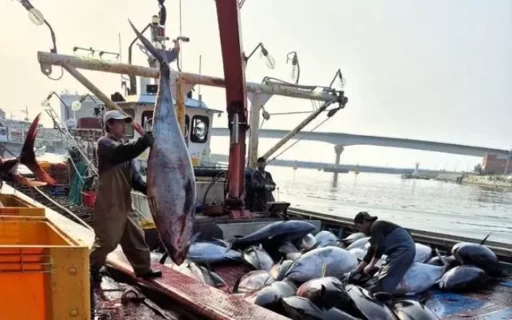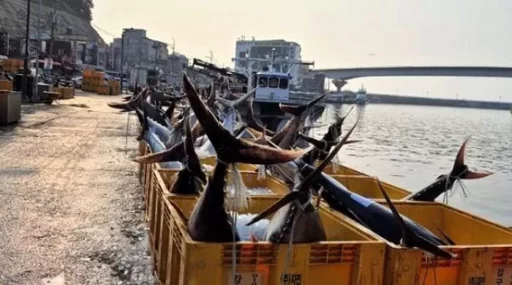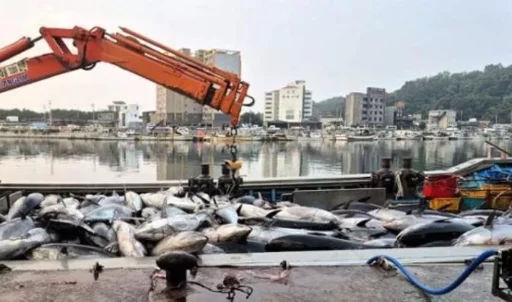Impact of Global Warming? A Large School of 70 Bigeye Tuna Captured Off the Coast of Yeongdeok
An unusual phenomenon occurred off the coast of Yeongdeok, Gyeongsangbuk-do, where a large school of 70 bigeye tuna (tuna) of subtropical species was captured all at once.
The rise in sea temperature due to global warming is believed to be the main cause.
According to Yeongdeok County, on the 6th, bigeye tuna measuring 1 to 1.5 meters in length and weighing 30 to 150 kg were caught in a set net fishery established off the coast of Samsari, Ganggu-myeon.

The captured bigeye tuna were auctioned through the Fisheries Cooperative at 14,000 KRW per kg, with a particularly large 150 kg tuna being sold for a high price of 2,100,000 KRW.
The Increase in Bigeye Tuna Sightings on the East Coast and the Impact of Climate Change
This mass capture is not the first of its kind. In February, a large bigeye tuna measuring 1.6 meters and weighing 314 kg was caught in the same area and sold for 10,500,000 KRW.
Looking back further, in July 2022, thousands to a maximum of 10,000 small tunas were caught in set nets established for anchovies and mackerel.
At that time, the caught tunas weighed between 5 and 10 kg, and due to an annual allowable catch limit of 74.4 tons, fishermen were forced to throw back the caught tunas into the sea.

Local fishermen analyze this phenomenon as a result of abnormal temperatures due to climate change.
The bigeye tuna, originally a subtropical fish, has a habit of migrating periodically without a fixed habitat.
It is primarily known to inhabit temperate and tropical waters of the Pacific, but recently due to rising water temperatures caused by global warming, it has been frequently discovered along the cold current of the East Coast, with its size also increasing over time.

A representative from Yeongdeok County stated, "The appearance of large bigeye tuna in the Yeongdeok waters is due to climate change," and added, "This phenomenon is expected to occur more frequently in the future."
Image source: Provided by Yeongdeok County

![[Breaking News] Jeong Cheong-rae elected as new leader of the Democratic Party… First ruling party head under Lee Jae-myung’s government](https://wordkorean.com/wp-content/uploads/2025/08/thumbnail-25.jpg)
